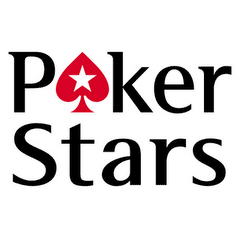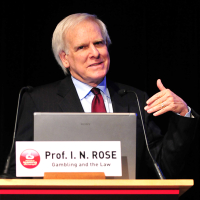 Earlier today it was announced that a federal grand jury returned indictments charging two gambling businesses and three defendants with conducting an illegal gambling business and money laundering. The two indictments were returned on April 26, 2011 and unsealed today. As part of the investigation, 11 bank accounts located in Charlotte, North Carolina; Guam; Panama; Malta; Portugal; and the Netherlands; and domain names associated with 10 internet gambling sites were also seized today.
Earlier today it was announced that a federal grand jury returned indictments charging two gambling businesses and three defendants with conducting an illegal gambling business and money laundering. The two indictments were returned on April 26, 2011 and unsealed today. As part of the investigation, 11 bank accounts located in Charlotte, North Carolina; Guam; Panama; Malta; Portugal; and the Netherlands; and domain names associated with 10 internet gambling sites were also seized today.
The following internet domain names were seized pursuant to court order:
Doylesroom.com
Bookmaker.com
2Betsdi.com
Funtimebingo.com
Goldenarchcasino.com
Truepoker.com
Betmaker.com
Betgrandesports.com
Betehorse.com
Beted.com.
Anyone who tries to access those web sites will be directed instead to a banner that provides notice that the domain name has been seized by order of the court. The banners are expected to be posted later today.
ThrillX Systems, Ltd., d/b/a BetEd; Darren Wright; and David Parchomchuk, both of British Columbia, Canada are charged in one indictment. K23 Group Financial Services, d/b/a BMX Entertainment; and Ann Marie Puig, age 35, of San Jose, Costa Rica are charged in a second indictment.
The indictments and seizures were announced by United States Attorney for the District of Maryland Rod J. Rosenstein; Special Agent in Charge William Winter of U.S. Immigration and Customs Enforcement, Homeland Security Investigations; Special Agent in Charge Rebecca Sparkman of the Internal Revenue Service – Criminal Investigation, Washington, D.C. Field Office; Anne Arundel County Police Chief James Teare, Sr.; and Colonel Terrence Sheridan, Superintendent of the Maryland State Police.
“It is illegal for internet gambling enterprises to do business in Maryland, regardless of where the website operator is located,” said U.S. Attorney Rod J. Rosenstein. “We cannot allow foreign website operators to flout the law simply because their headquarters are based outside the country.”
“These indictments are the direct result of impressive undercover investigative work by our agents, along with the close collaboration of our law enforcement partners here in Maryland,” said William Winter, Special Agent in Charge of ICE’s Homeland Security Investigations (HSI) in Baltimore. “The proceeds from illegal Internet gambling are often used to fuel organized crime and support criminal activity. ICE HSI will work diligently to uncover illicit transactions involving these types of financial crimes. Together, with our law enforcement partners, we will disrupt and dismantle organizations that commit these crimes, regardless of their location, whether here in the United States or abroad.”
“Internet gambling, along with other types of illegal e-commerce, is an area of great interest to IRS Criminal Investigation,” said IRS Special Agent in Charge Rebecca A. Sparkman. “Laundering money from illegal activity such as illegal internet gambling is a crime. Regardless of how the money changes hands – via cash, check, wire transfers or credit cards – and regardless of where the money is stored – in a United States financial institution or an offshore bank – we will trace the funds. IRS Criminal Investigation will vigorously investigate and recommend prosecution against the owners and operators of these illegal enterprises to the fullest extent possible.”
According to the two count indictments and the affidavit filed in support of the seizure warrants, ThrillX, a registered company in British Columbia, Canada, with offices in Vancouver, Canada and San Jose, Costa Rica, is a software solutions provider producing online sports book and casino software. BMX Entertainment, based in Limassol, Cyprus, operates six websites that offer online sports betting services.
The indictments allege that the defendants own and manage illegal gambling businesses involving online sports betting. The affidavit alleges that online gambling sites are run by companies located outside of the U.S., while the majority of customers are in the U.S. Internet gambling operators rely upon the U.S. banking system, and more specifically, money-processing business generally called “payment processors,” to facilitate the movement of funds to and from their customers, the gamblers. Typically, an internet gambling operator directs the payment processor to collect funds from individual gamblers which are used to wager with the gambling organization. Those gambling proceeds are transferred to an offshore foreign bank. The internet gambling operator then sends a check or wire transfer from an offshore bank to the payment processor, directing the payment processor to distribute the money to gamblers for their winnings.
The affidavit filed in support of the seizure warrants alleges that Homeland Security Investigations in Baltimore, Maryland opened an undercover payment processor business, called Linwood Payment Solutions. Linwood allowed undercover agents to gain person-to-person contact with top managers of gambling organizations to discuss the Internet gambling business, to negotiate contracts and terms of the processing, and to handle the intricate movement and processing of collection and payment data from the gambling organizations to the banks.
The affidavit alleges that on November 12, 2009, a Maryland-based online gambler and cooperating informant confirmed that he/she frequented gambling sites, opened accounts and gambled in Maryland. The gambler agreed to set up online gambling accounts and was provided $500 to place bets on gambling websites. The gambler created an account on a BetEd website and placed several bets. On March 30, 2010, BetEd used Linwood to wire transfer $100 in winnings to the gambler’s bank account.
Linwood allegedly processed gambling transactions since 2009 for BetEd, K23 and other gambling organizations using banks located in Guam and Charlotte, North Carolina. According to the affidavit, between December 2009 and January 2011, Linwood processed over 300,000 transactions worth more than $33 million, including transactions for individuals in Maryland. Between February 2010 and March 2011 alone, BetEd directed Linwood to wire transfer over $2.5 million of collected gambling proceeds to bank accounts in Panama; and between February 2011 and April 2011, K23 directed Linwood to wire transfer over $91,000 of gambling proceeds to bank accounts in Portugal and Malta.
The indictments and affidavit seek the forfeiture of the bank accounts used to process the gambling transactions, as well as domain names of websites used by the defendants to further the online gambling transactions.
The defendants face a maximum sentence of five years in prison for operating an illegal gambling business and a maximum of 20 years in prison for money laundering. No court appearance has been scheduled.
UPDATE: We have it on good authority that DoylesRoom will continue to cater to US players and may even get their domain name back. We’ll keep you posted.
Bookmaker is already back up and running under a new domains and sent this email out to all players;
As you may already know, Bookmaker has temporarily lost the rights to the Bookmaker.com domain. We are confident that in time, it will be returned to us, until then, we have launched a new, temporary site: bmaker.ag.
Despite having lost the domain, none of the business operations have otherwise been affected. Player account balances and information are safe and secure. Effective immediately, players can log on to bmaker.ag. and it’s business as usual.
You likely won’t notice any other changes at all and will experience all the same features and benefits as our original site; just on a new address.
We sincerely apologize if you were affected by our interruption. As always, if you have any questions or concerns please call our customer service department at 1-866-9Bookmaker.


 This is a compilation of information from PokerStars on the recent withdrawal from the United States market.
This is a compilation of information from PokerStars on the recent withdrawal from the United States market. The timing is suspicious.
The timing is suspicious.